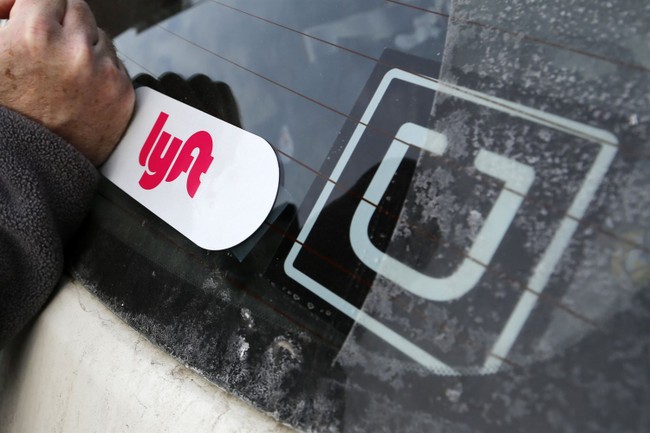
Last month, the Minneapolis City Council passed new labor regulations that would require ride-sharing companies to greatly increase the amount they pay drivers using their apps. This was ostensibly done to ensure that drivers would be able to at least earn the minimum wage mandated by the city. Uber and Lyft had both warned the council that if the measure was put in place they would pull out of the city. The council moved forward with the measure anyway and the two companies quickly announced that they would be terminating their services in Minneapolis next month. Rather than returning to the table and trying to work out a deal, the City Council has instead proposed allocating $150,000 in taxpayer funds to help finance smaller ride-share companies to replace the giants of the industry. To say that everyone involved is skeptical about this plan would be an understatement. (National Review)
Amid intense blowback over a new local law that is driving Uber and Lyft to pull out of their city, some members of the far-left Minneapolis City Council are proposing to spend $150,000 to seed small, upstart transportation companies looking replace the rideshare giants.
The proposal, which is slated for discussion during the council’s budget meeting on Monday, would dedicate $150,000 in unobligated general-fund money “for small business financing for transportation network companies,” according to a resolution by four council members.
In the weeks since the council jacked up mandated pay rates for rideshare drivers, leading Uber and Lyft to announce their departures from Minnesota’s largest city, several small companies have “expressed eagerness” to begin operating in Minneapolis, according to a background document submitted with the proposal.
The number of places where the City Council’s plan appears to have gone off the rails is almost too numerous to count. Right off the bat, they made the mistake that so many others have done before them. Trying to force Uber and Lyft to pay their drivers the equivalent of minimum wage is essentially pointless because the companies do not have “employees.” They have self-employed contractors who make use of the app they provide to find riders and set their own working hours to do so. You can’t “normalize” their pay structure because these are not normal “jobs.”
Even if we ignore that reality, other glaring mistakes were made in this process. The council’s proposed rates of pay per minute and per mile were a huge leap from current levels. The changes would have made this business model unprofitable and driven up costs for riders, likely leading to the drivers getting less work. Also, as National Review points out, the council rushed the changes out without waiting for the results of a state labor study of the question. When the study was released, it suggested that the drivers could readily earn the equivalent of the minimum wage with significantly lower increases.
Then there is the matter of the “solution” being proposed by the City Council. They are talking about putting up $150,000 to help new or smaller rideshare companies who are willing to try to replace Uber and Lyft. But those two ride-share giants currently provide more than one million rides per month in the Twin Cities. The smaller companies being contacted mostly only have a handful of cars and drivers. What is $150K going to do to help any of them fill the void that will be left if Uber and Lyft pull out? Even the state’s Democratic Governor has described this plan as “magical thinking.”
So many people rely on Uber and Lyft for basic and critical transportation needs today, particularly among the less wealthy and senior citizens. There simply is no replacement that could be quickly rolled out. The ride-share industry has killed off the conventional cab business, with only 39 licensed cab drivers left in the city. Public transportation isn’t convenient enough to allow people to go shopping or make it to medical appointments without massive amounts of hassle. Telling all of those people to go buy private vehicles and pay all of the associated expenses that entails is not a solution, particularly under the current economic conditions. (Thanks, Bidenomics!) The City Council needs to take the Governor’s advice and get back to the negotiating table immediately. They’ve really screwed the pooch here, and Uber and Lyft need to be convinced to stay. But the council will have to be willing to give something in return.
